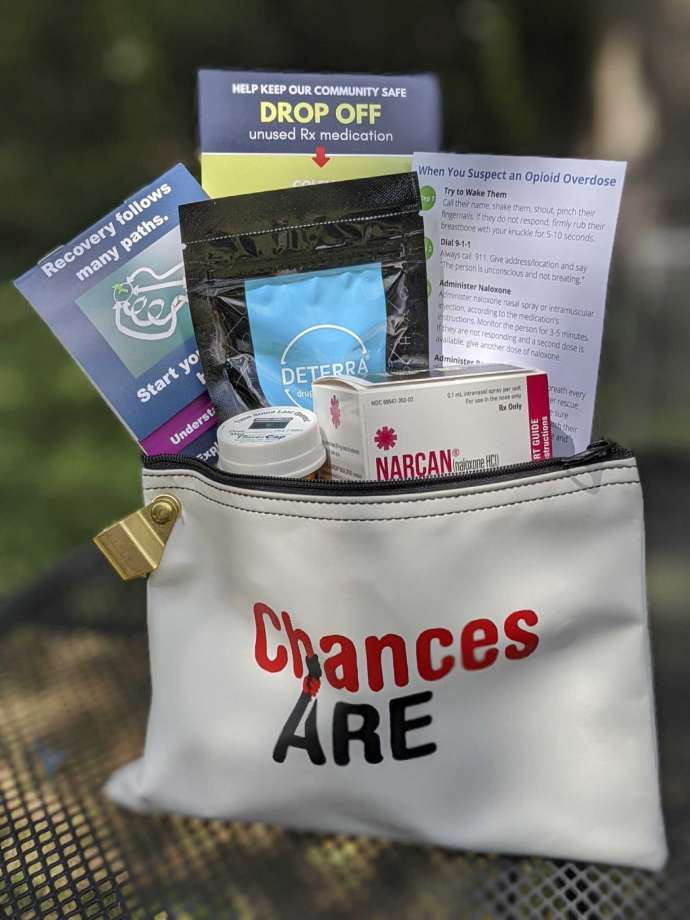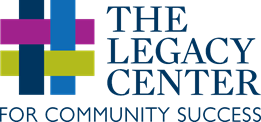
Science has proven that substance use disorder is a chronic brain disease that can be managed with medical treatment. It is NOT a moral failing or a character flaw. But still, only 1 in 10 Americans with a substance use disorder receive treatment.
Addiction is highly stigmatized and that stigma is helping to fuel an American Public Health crisis. It is the hope of Arenac, Bay, Midland, Saginaw, and Tuscola counties that this anti-stigma campaign with help to create a healthier and more supportive community.
This campaign is a collaborative effort of the Great Lakes Bay Region. The official Chances Are website is housed on the Peer360 website. You can learn more about this campaign and download materials by clicking here.
| STIGMATIZING LANGUAGE | PREFERRED LANGUAGE |
| Addict | Person with a substance use disorder |
| Addicted to X | Has a X use disorder |
| Addiction | Substance use disorder |
| Alcoholic | Person suffering from alcohol addiction |
| Clean | In recovery |
| Clean screen | Substance free |
| Dirty | Actively using |
| Dirty screen | Testing positive for substance use |
| Drug habit | Regular substance use |
| Drug abuser | Person who uses drugs |
| Reformed addict or alcoholic | Person in recovery |
| Opioid replacement | Medication assisted treatment |

What is an Opioid?
National Institute on Drug Abuse (NIDA) defines an opioid as a class of drugs that include the illegal drug heroin, synthetic opioids such as fentanyl, and pain relievers available legally by prescription, such as oxycodone (OxyContin®), hydrocodone (Vicodin®), codeine, morphine, and many others.
Many prescription opioids are used to block pain signals between the brain and the body and are typically prescribed to treat moderate to severe pain. In addition to controlling pain, opioids can make some people feel relaxed, happy or “high,” and can be addictive.
Risks of Dependence and Addiction
Opioids are commonly prescribed after medical or dental procedures, and a person can become dependent on opioids in as little as 5 days, and the risk of dependency increases with each additional day a person takes the drug. Prescription pills are often considered less dangerous because they are given by a doctor, so teens and young adults will use them or share them, thinking they are safer than other illicit drugs.
When a person is taking a prescription opioid, the body will cease to create its own version of opioids – endorphins. This means the body relies on the opioid drug to feel good. However, the body builds up a tolerance over time and the person will need more and more opioids to feel good.
What You Can Do
• Talk to your children about the dangers of misusing prescription drugs, including using someone else’s prescription or not following a doctor’s instructions.
• Watch for signs that your teen is using other substances, like alcohol, tobacco, and marijuana. Most teens and young adults who use opioids began with other substances first.
• Talk to your doctor about the risks of opioids and alternative methods of managing pain.
• Keep your prescription drugs locked, and dispose of extras when you are done taking the medication.
• Learn the signs of drug abuse and symptoms of overdose.
• Build your teen’s Developmental Assets.
Since 2009, The Legacy Center, the Midland Police Department, and the Midland County Sheriff’s Office have been working together to collect unused, expired medications – both prescription and over-the-counter. Through this effort, we have collected more than 20,000 pounds of unused prescription medication.
Dump Your Drugs aims to reduce the supply of drugs that are unknowingly made available to vulnerable persons, such as youth or persons with a substance use disorder. By properly disposing of your unused medications you are helping to create a safe and healthy community.
For upcoming dates and times for Dump Your Drugs, click here.
201 E Railway St,
Coleman, MI 48618
989.465.6961
Meijer Pharmacy
7300 Eastman Ave,
Midland, MI 48642
989.837.5310
Michigan State Police
2402 Salzburg Rd,
Freeland, MI 48623
989.495.5555
Midland County Law Enforcement Center
2727 Rodd Street,
Midland, MI 48640
989.631.5716
Walgreens Pharmacy
1615 N Saginaw Rd,
Midland, MI 48640
989.832.2491
What is Naloxone (Narcan)?
Naloxone, also known as Narcan®, is a medication approved by the Food and Drug Administration (FDA) to prevent overdose by opioids such as heroin, morphine, and oxycodone. It blocks opioid receptor sites, reversing the toxic effects of the overdose. Naloxone can save lives.
Signs of an Overdose
Sometimes it can be difficult to tell if a person is just very high, or experiencing an overdose. If you’re having a hard time telling the difference, it is best to treat the situation like an overdose – it could save someone’s life. The following are signs of an overdose:
Loss of consciousness, unresponsive to outside stimulus, awake but unable to talk, breathing is very slow and shallow, erratic, or has stopped. For lighter skinned people, the skin tone turns bluish purple, for darker skinned people, it turns grayish or ashen. Choking sounds, or a snore-like gurgling noise (sometimes called the “death rattle”). Vomiting, body is very limp, face is very pale or clammy, fingernails and lips turn blue or purplish black, pulse (heartbeat) is slow, erratic, or not there at all.
Naloxone Training
Prevention staff, in coordination with Ten16 Recovery Network, Walgreens Pharmacy, and Midland Sheriffs Department, offer quarterly Naloxone trainings for any community member who would like to learn more about Naloxone. This training teaches participants the signs of an overdose, what Naloxone is, how to use it, and gives them hands on experience using the reversal drug.
Contact us to schedule a training for your business or group. You can see our upcoming events by visiting our Facebook page.
You can obtain Naloxone at the following locations:
Community Mental Health
218 Fast Ice Dr,
Midland, MI 48642
Monday – Friday I 8am – 5pm
989.631.2320
Midland County Health Dept.
220 W Ellsworth St,
Midland, MI 48640
Monday – Friday I 8am – 5pm
989.832.6380
West Midland Family Center
4011 Isabella Road,
Shepherd, MI 48883
989.832.6380
Naloxone is Available at Most Pharmacies
In 2016, Michigan passed a Naloxone standing order law. This allows a pharmacist to dispense Naloxone without an individual prescription and without identifying a particular patient. Naloxone is an opioid overdose reversal. It saves lives.
